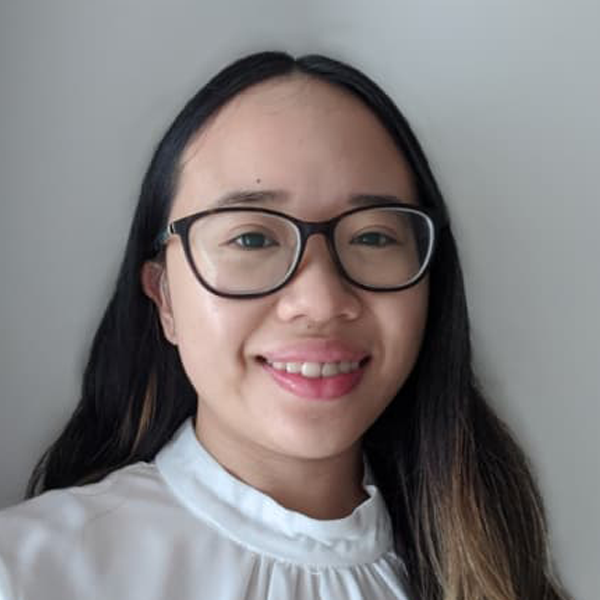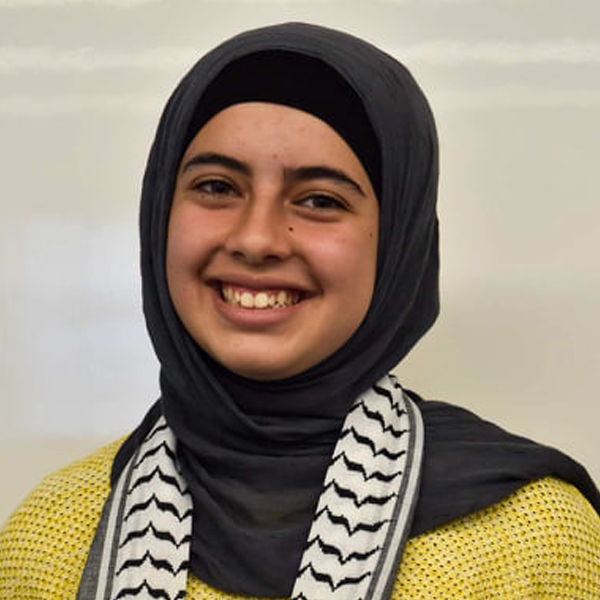Young people are often left out of the health research process. But so many health policy and service decisions are based on data and evidence! Still, we are not usually consulted on health issues that impact us or our communities. Even when we are involved in youth health research, our engagement and participation can be tokenistic. It is a rare occasion when we participate in youth health research beyond the role of research participants, let alone informing or seeing the final product.
The Wellbeing Health & Youth (WH&Y) Centre of Research Excellence aims to change this through the WH&Y Commission. The WH&Y Commission is currently made up of 27 diverse young people, aged 14-23, from the Greater Sydney region. We aim to help to set youth health research agendas and the use of youth health research on national, state and local communities. We come from diverse cultural and socio-economic backgrounds and have a wide range of capacities and backgrounds such as migration and seeking asylum, diverse sexual orientation and gender identity and living with disability or chronic illness. In 2021, we received training in research methods, ethics and communication.
As WH&Y Commissioners, we would like to address the barriers that impact our access to health and healthcare. Drawing from our youth-led WH&Y Commission 2021 Report, we offer guiding principles to help researchers design studies with young people to help address youth health issues. The report was produced by young people in genuine partnership with researchers and staff at WH&Y.
Barriers to healthcare
Healthcare continues to overlook the unique and changing needs of young people in the teenage decade. There are barriers that greatly affect our ability to access appropriate health services that are tailored towards young people. We experience ‘‘layers of disadvantage in health’’ as a result of our age as well as our social, cultural, health, gender, abilities and other aspects of our identities. This makes it difficult for us to access and navigate healthcare.
The social determinants of health further exacerbate our ability to access healthcare. These determinants include ‘‘economic stability, education, affordable and safe housing and employment, and the implications of these factors on young people’s access to health information and services’’. Every young person has different experiences of these factors. However, this means that health services are often not inclusive and do not cater for our specific needs.
The COVID-19 pandemic has shone a light on pre-existing issues within the healthcare system. The pandemic has also revealed the ineffectiveness and difficulty of accessing health services particularly for young people experiencing disadvantage. This has a detrimental impact on our health and wellbeing, especially when these accessibility issues are underpinned by health inequalities.
Accessible and appropriate healthcare for young people is now more important than ever, especially in light of the COVID-19 pandemic. This is particularly important for mental health services as we continue to adjust and recover from the lasting impacts of the pandemic. The COVID-19 pandemic will impact our ‘‘education, work (and work prospects) relationship and networks’’. In order to be resilient during these challenging times, we want ‘‘ greater financial, emotional and moral support’’ for not only ourselves but also for our families, friends and communities.
How can researchers work with young people?
Before we start bridging or addressing the gaps in healthcare for young people, researchers should engage with young people to understand their health and wellbeing concerns. This means co-designing research with young people to create the questions, methods and outputs. Researchers would also need to consider how they can work in partnership with young people to generate outcomes that are reflective of their needs.
To create partnerships with young people, we should be involved in research from the very beginning. Our involvement should be ongoing and we want to directly work with stakeholders to create research that helps us advocate for better healthcare for young people. But before we have an open conversation about healthcare, we want adults to gain and build our trust. A genuine partnership means that our engagement is not tokenistic. At the centre of youth health research, young people’s experiences and stories should be used to shape research agendas and improvements to the health system.
To reach young people, we recommend researchers utilise social platforms that young people use to create better engagement. These platforms are an effective way of reaching Australian youth, to recommend services or empower youth to have a voice. Ultimately, young people know what works for their generation. They will most benefit from a renewed healthcare system that better meets their needs.
WH&Y Commission’s research priorities
The WH&Y Commission has recently released a report to help researchers, policy makers and health professionals understand the key concerns and health priorities of young people. As many of the WH&Y Commissioners come from a CALD background, we can see many gaps that need to be filled for adolescents’ access to healthcare. We recommend that researchers consult young people regarding their health research priorities. Based on discussions with the Commissioners, here are some additional priorities:
- We want more inclusive ways for health professionals to speak to young people.
- We want intersectional approaches to inform the processes, policies and professional practice in health services that young people access.
By allowing young people to pinpoint their main concerns in the healthcare system, we can set an informed and accurate agenda for changes in this system. Health is a basic human right and more needs to be done to attain health equality among all communities.
What needs to be done looking forward?
We want to work together with researchers to address, refine and resolve key health priorities for young people for investigation.
We invite others to partner with the WH&Y Commission to support researchers and policy-makers to improve youth health research, policy and practice. We are trained, engaged and ready to collaborate in a new era of youth healthcare in Australia.
Acknowledgements:
We acknowledge all members of the Wellbeing Health & Youth (WH&Y Commission), their contributions and diverse views.
 Betty Nguyen Betty Nguyen (she/her) is a research assistant from the Young and Resilient Research Centre, Western Sydney University. She supports and coordinates the Wellbeing Health & Youth (WH&Y) Commission. With her experience as a youth peer researcher, she aspires to co-create, co-design and collaborate with young people through genuine partnerships. She has experience working with young people in the youth, research and legal sectors.
Betty Nguyen Betty Nguyen (she/her) is a research assistant from the Young and Resilient Research Centre, Western Sydney University. She supports and coordinates the Wellbeing Health & Youth (WH&Y) Commission. With her experience as a youth peer researcher, she aspires to co-create, co-design and collaborate with young people through genuine partnerships. She has experience working with young people in the youth, research and legal sectors.
 Anhaar Kareem (she/her) is a WH&Y Commissioner and is fourteen years old. She is currently in year 9 and lives and attends school on Wangal land. She would like to pay her respects to the Elders past, present and future. Anhaar is really passionate about doing work for other youth to ensure equality, especially for marginalised or minority youth. Anhaar can relate to and have seen gaps in the health system for young people, like herself.
Anhaar Kareem (she/her) is a WH&Y Commissioner and is fourteen years old. She is currently in year 9 and lives and attends school on Wangal land. She would like to pay her respects to the Elders past, present and future. Anhaar is really passionate about doing work for other youth to ensure equality, especially for marginalised or minority youth. Anhaar can relate to and have seen gaps in the health system for young people, like herself.
 Dominique R (she/her) is a WH&Y Commissioner and is seventeen years old. She is currently in year 12 and is incredibly passionate about the importance of mental wellbeing and, in general, advocating for accessible health services. She believes that we have a long way to go in the public health sector to ensure the most vulnerable are able to access health services. She also has a deep passion for youth homelessness, advocacy for survivors of domestic violence, and young carers awareness and support. Her personal experiences have inspired her to continue to advocate for these causes, and she hopes to contribute in a meaningful and impactful way.
Dominique R (she/her) is a WH&Y Commissioner and is seventeen years old. She is currently in year 12 and is incredibly passionate about the importance of mental wellbeing and, in general, advocating for accessible health services. She believes that we have a long way to go in the public health sector to ensure the most vulnerable are able to access health services. She also has a deep passion for youth homelessness, advocacy for survivors of domestic violence, and young carers awareness and support. Her personal experiences have inspired her to continue to advocate for these causes, and she hopes to contribute in a meaningful and impactful way.
